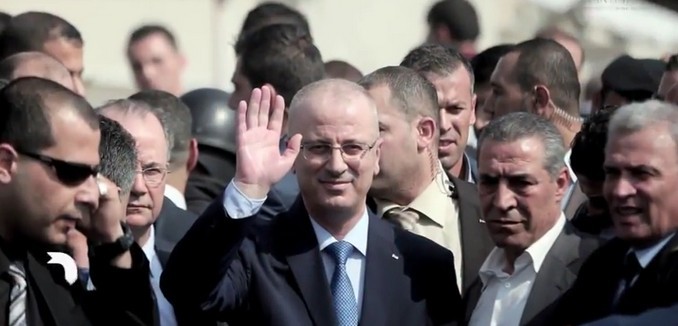In April 2014, Fatah, the dominant faction in the Palestinian Authority (PA), and the terrorist organization Hamas announced the end of the longstanding and violent rift between them, which began in 2007 when Hamas staged a bloody coup to take over Gaza. Both movements announced a series of reconciliation measures. But the agreement, in addition to effectively ending American-sponsored peace negotiations, also failed to bring about a functioning government to serve Palestinian interests.
A year later, many major issues are still outstanding. Israel saw the reconciliation as antithetical to the peace process. While PA President Mahmoud Abbas’ Fatah party states it supports the two-state solution, the Iran-backed terror organization Hamas is violently opposed to peace with Israel, as its stated goal is the destruction of the Jewish state and its replacement with a fundamentalist Islamic state.
Measures agreed upon by the two parties, such as renewing the activities of the Palestinian Legislative Council and holding elections, never came close to fruition. The only achievement was the establishment of a national unity government, and analysts say even this government did not perform its duties and became “the Government of Abbas.”
Dr. Naji Sharab, professor of political science at Al-Azhar University in Gaza, told al-Jazeera (Arabic link) that the agreement was only a general framework that could achieve reconciliation, since there is no positive political atmosphere and neither side has made goodwill gestures. “The main problem is that each side interpreted the agreement as it wanted and according to its own views,” said Sharab.
Khalil Shaheen, a political analyst who is close to the dialogue that was held between the rival movements, attributed the failure to Abbas not wanting to make concessions to Hamas so that the terror group could take a real part in the Palestinian decision-making process. Shaheen added that there is currently no real partnership between the two factions in the Palestinian political system.
The most significant conflict between the parties relates to the tens of thousands of civil service employees appointed by Hamas in the Gaza Strip after the 2007 coup. Hamas has demanded that their employees be officially considered employees of the Palestinian Authority, and that they should receive backdated salaries. But the PA does not want to pay tens of thousands of Hamas security force members, who were responsible for overthrowing it and chasing it out of Gaza.
Agence France-Presse reported that last week a delegation of ministers from the unity government arrived in the Gaza Strip from the West Bank in order to resolve this dispute. But the delegation was ordered home by Prime Minister Rami Hamdallah after only one day, due to the intractability of the disagreement. The delegation did not leave their hotel during their time Gaza, with one member attributing it to “the ‘thuggish’ and ‘terrorist’ methods of Hamas.”
The comment recalls an earlier one made in December by a PA official who was tasked with rebuilding Gaza after Operation Protective Edge last summer: “How do you expect me to go work in the Gaza Strip, when the Qassam Brigades [Hamas’s elite paramilitary group] goes ahead of me in both power and weapons?”
As both the Fatah-dominated PA and Hamas have failed to cooperate, Gaza’s reconstruction has been delayed, despite Israeli efforts to move the process along. Hamas has also been diverting reconstruction materials to rebuild its terror tunnels.
Former Israeli peace negotiator Tzipi Livni identified the unity agreement between Fatah and Hamas as a leading factor in sabotaging American-led peace talks last year.
[Photo: Levantine Group / YouTube ]




